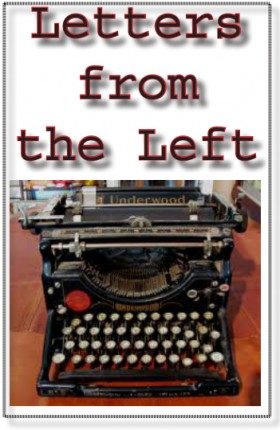
Kindness is a wonderful thing, and we really do see far too little of it in this toxic culture.
But is it kind to say George W. Bush is a good man? Or is it maybe an undeserved absolution of his crimes?
I do believe most of the really horrible crimes in the Bush administration were perpetrated by his vice president, Dick Cheney. But Bush was the boss. He approved those policies, including an illegal and ill-advised war on Iraq that cost hundreds of thousands of lives; torture; “extraordinary rendition,” or the kidnapping and torture of people who hadn’t been convicted of any crime; the shaping of public policy by corporate people who stood to gain billions; the failure to move on any of the issues that affect people in horrible ways.
Despite all these things, he walked away a free man, able to start painting his dogs, his feet in the bathtub, whatever. He’s carefree, and that seems to be a sign to me that his crimes don’t cause him any trouble at all.
What bothers me is his lack of remorse for all of it.
It’s one thing to be kind to someone you disagree with — as much as I oppose the current occupant of the White House, I do have a number of friends who voted for him — but disagreeing on policies is one thing; being friends with the people who put those policies in place is quite another. Believing the lies is one thing; perpetrating them is quite another.
To treat him kindly is a form of disrespect toward the many, many people who died as a result of his administration’s policies, both foreign and domestic.
I’m working on being kinder, especially on social media. I do not allow disrespect of others on my wall — I will block repeat offenders after a single warning.
But, let’s face it, it’s hard to be nice to someone who thinks poor people are lazy because that’s what they’ve been fed by Fox News and others. It doesn’t take a whole lot of critical thinking skills to see through the lies. On the other hand, when you’re working two jobs and you still can’t make ends meet, you don’t have a whole lot of time and energy left over to do the research on your own.
Kindness is important, and we do need to be a whole lot kinder to each other. But people who commit the kind of crimes perpetrated by the Bush administration don’t deserve our kindness. They need to face consequences for their actions. If we think a woman who steals a coat deserves the same sentence as a cop who shoots a neighbor in cold blood after walking into the wrong apartment, we’re more than a little confused about the meaning of consequences.
We live in a country where justice is for sale. Rich people pay a tiny percentage of their wealth for serious crimes while poor people sit in jail for months for lack of access to cash for bail, losing their jobs, homes and even their children.
I think if we’re going to talk about kindness, we need to talk about kindness toward those people Jesus referred to as “the least of these, my brothers and sisters.”
It would be kind to guarantee access to health care for everyone.
It would be kind to pay people a living wage in exchange for a week’s work.
It would be kind to make sure children in poor school districts got the same quality of education as kids in wealthy districts.
It would be kind to hold cops accountable for the murders of unarmed black men.
It would be kind to take immediate and serious action on climate change so that our grandchildren will inherit a habitable planet.
It would be kind to offer real social, economic and racial justice.
I’m happy to be kind to people who disagree with me; I will not be kind to the people who tell the lies and make disastrous and lethal public policies.




